The Qassar caste trapped in their age-old-custom
The Dhobi community is considered as a lower caste among Muslims. In rural areas the people of this caste are still making a living by washing clothes.

Saeed Ahmed, an eighty-two-years-old man is the oldest in his family who has been washing clothes for seventy years. He started working from childhood.
He used to go with his father to the lake early in the morning to help him in washing clothes and that’s how his journey into their traditional occupation started.
Ahmed belongs to the Dhobi community living in Samaspur Khora village of Bijnor district in Uttar Pradesh. And he is still continuing the traditional occupation of washing clothes.
The people in the community say that this work is the legacy left by their ancestors.
The Qassar caste is known as Muslim Dhobi. In India, they continue to depend on their traditional occupation of washing clothes. There is no existing literature on the history of the Qassar community.
The community is distributed throughout North India and South India, with concentrations in Delhi, Gujarat, Uttar Pradesh, Haryana and Bihar. Perhaps the largest concentration of Dhobis is found in Uttar Pradesh.

Indian Muslims have stratified themselves into three main castes: Ashraafs, Ajlafs and Arzals.
Ashraafs are the Brahmin equivalent, Ajlafs are the Vaisya equivalent and Shudras, and Arzals (vile, vulgar), in other words a group comprising non-Untouchables and converted “Untouchables” who, as in Hinduism, practice supposedly impure trades.
Despite their conversion to Islam, the social, economic and educational status of the Arzals remains pathetic.
The Dhobi community belongs to the Arzal caste due to which they have always faced discrimination.
In rural areas it still seems difficult to be free of one’s socio professional identity linked to one’s group of origin.
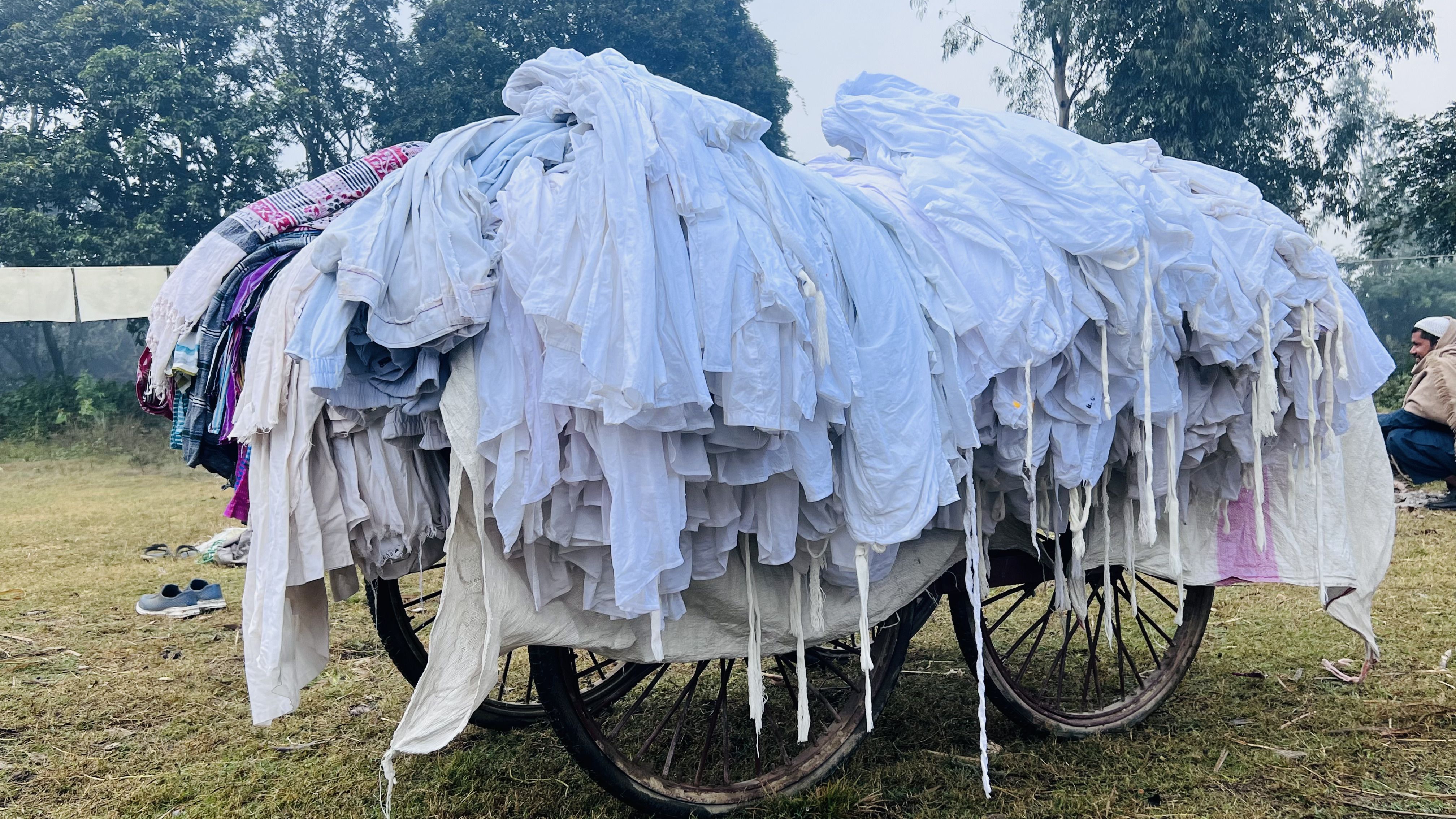
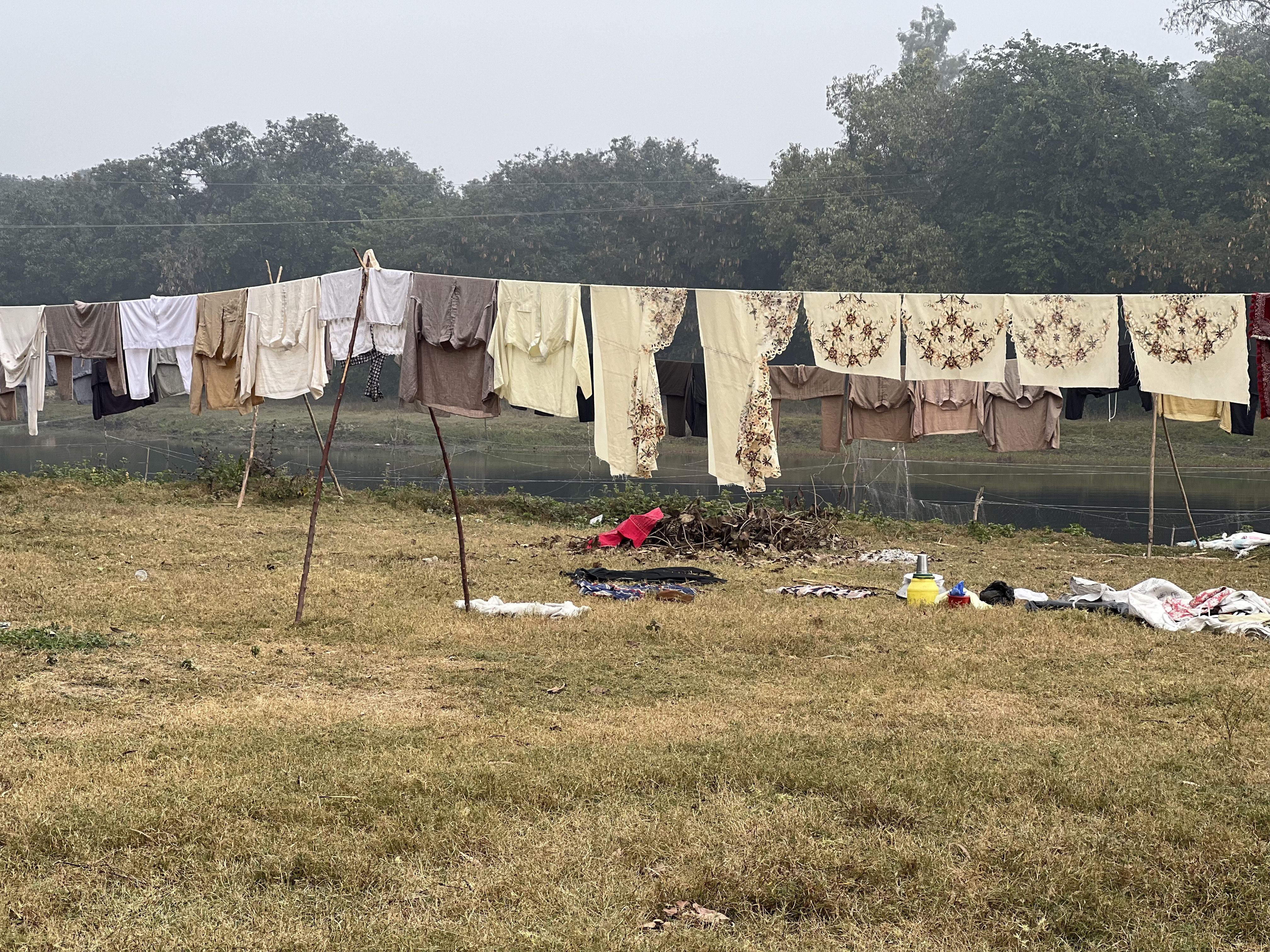
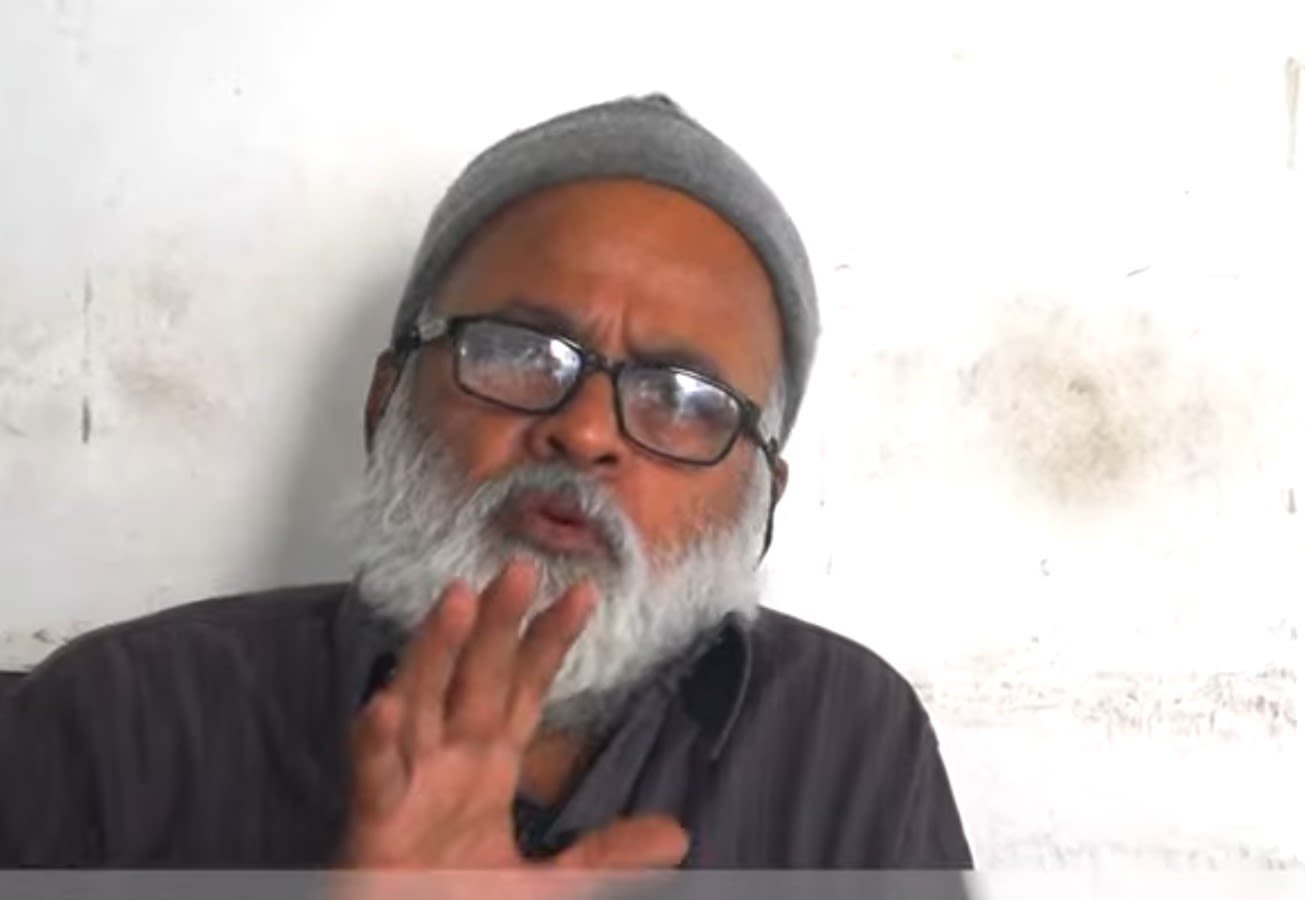
Dr Ejaz Ali, a national convenor of the All-India Backward Muslim Morcha (AIBMM) said in an interview with Outlook India that traditionally, the dhobi community would wash clothes for particular families, and would receive grain and services from them.
But with the growth of the cash economy, most Dhobi are now paid money for their services.
Saeed said it is not an easy job to stand in water for hours to wash clothes. “Poverty forces you to do anything, otherwise who does not like comfort?” he added.
Despite being the oldest in his family, he washes the maximum number of clothes; his family members call him iron man.
Waheed, a sixty-two-year-old man is a two wheeler mechanic but he also comes to the lake to help his brother Saeed in washing clothes.
Whether it is a bitter cold or scorching sun, these people do not stop their work.
“It is not easy to stand in the water for the whole day, but what to do, this is the source of our daily bread,” said Waheed.
All the clothes have to be washed by hand, due to which they get blisters on their palms.
Shanno said that she doesn't even feel like getting up early in the morning, but she has to get up to wash clothes.
They also iron the clothes after washing them but the iron they use is not electric, it is coal iron.
In summer it is difficult for them to iron with a coal iron because they can’t switch on the fan while ironing so that the clothes do not get burnt.
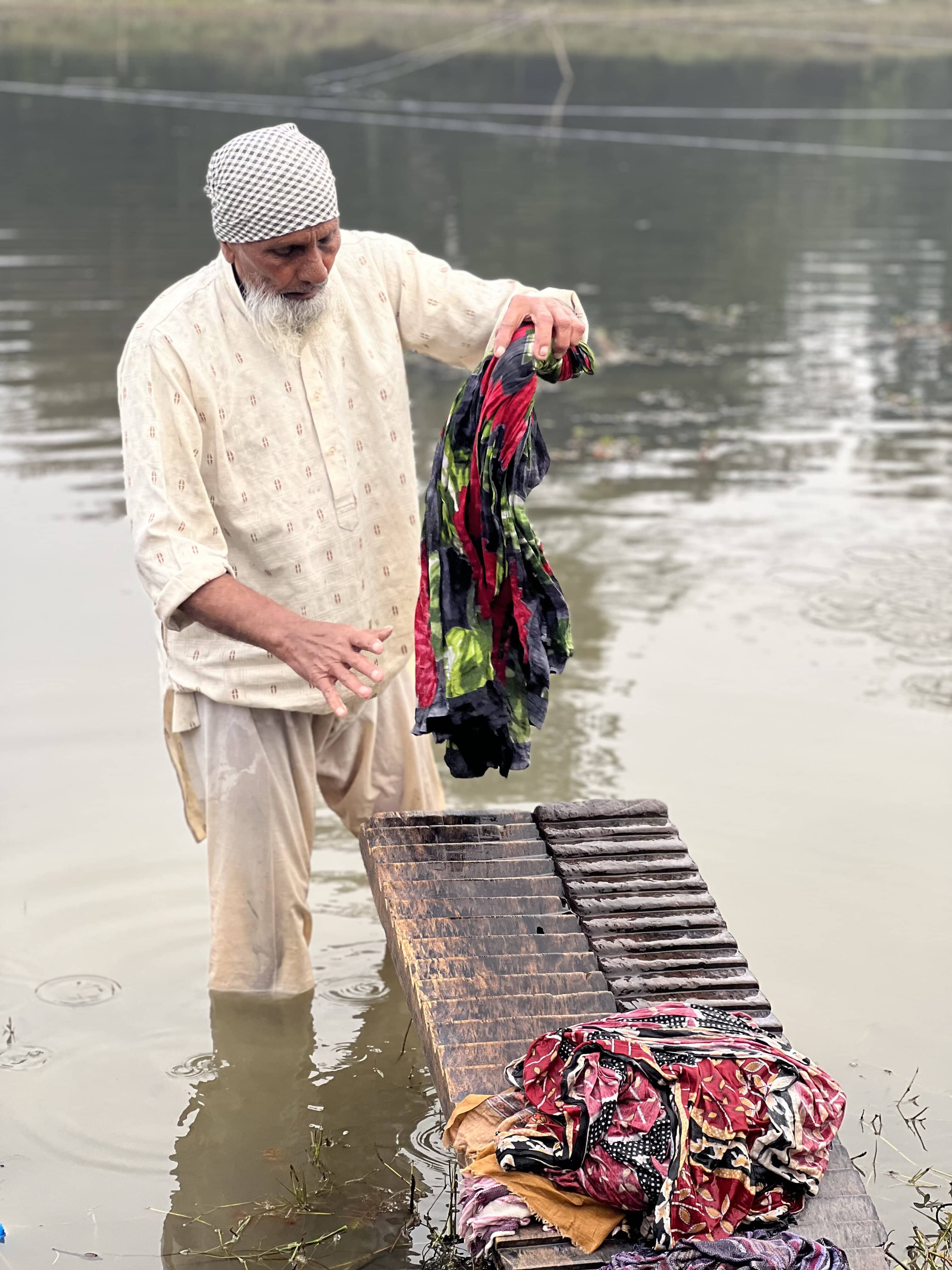
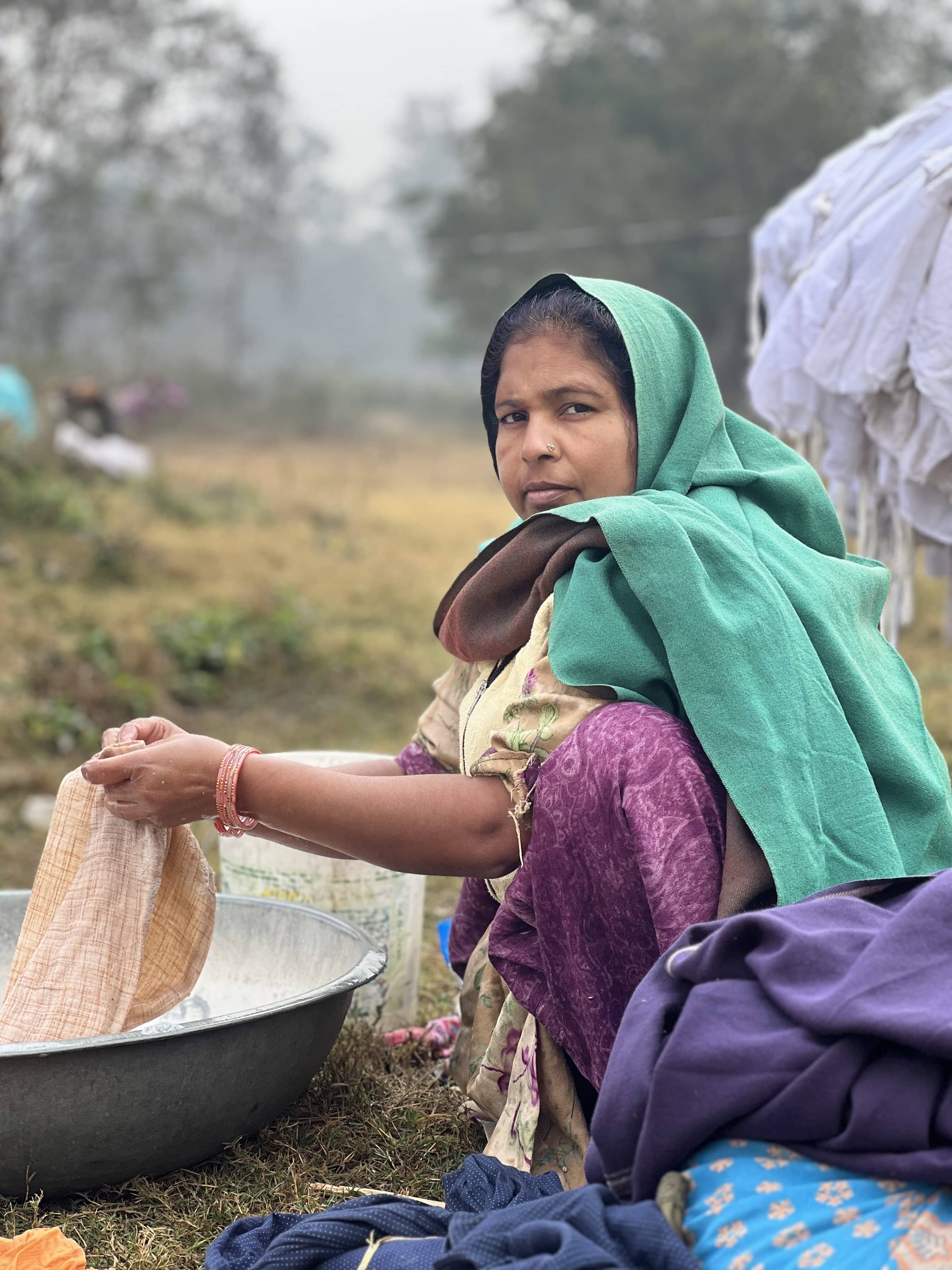
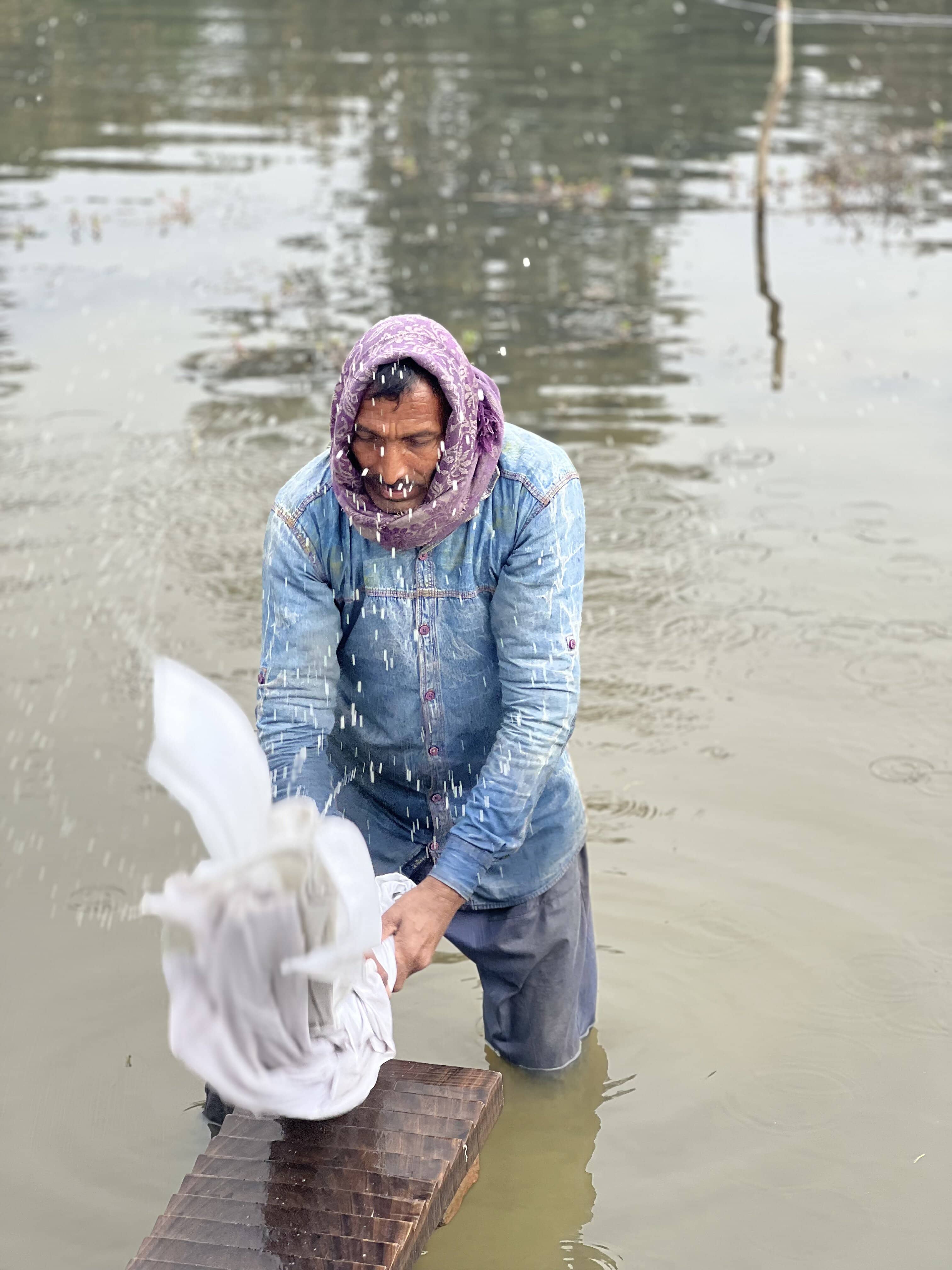
Dhobi community comes under the Other Backward Classes (OBC) list but the people of this caste are demanding to be included in the Scheduled Caste (SC) list.
“The SC category must be made religion-neutral on the lines of OBC, ST and EWS quota,” said Khalid Ali Ansari in an interview with IndiaSpend.
The Caste census has not been conducted since 1931, due to which there is no information regarding this marginalised community, due to which no development program has been done for them.
Ansari highlighted that data on caste is imperative for enabling reasonable conversations on categorical revisions within SC, Scheduled Tribe (ST) and OBC categories, the legitimacy of the Economically Weaker Section (EWS) category, targeted development programmes for the marginalized.
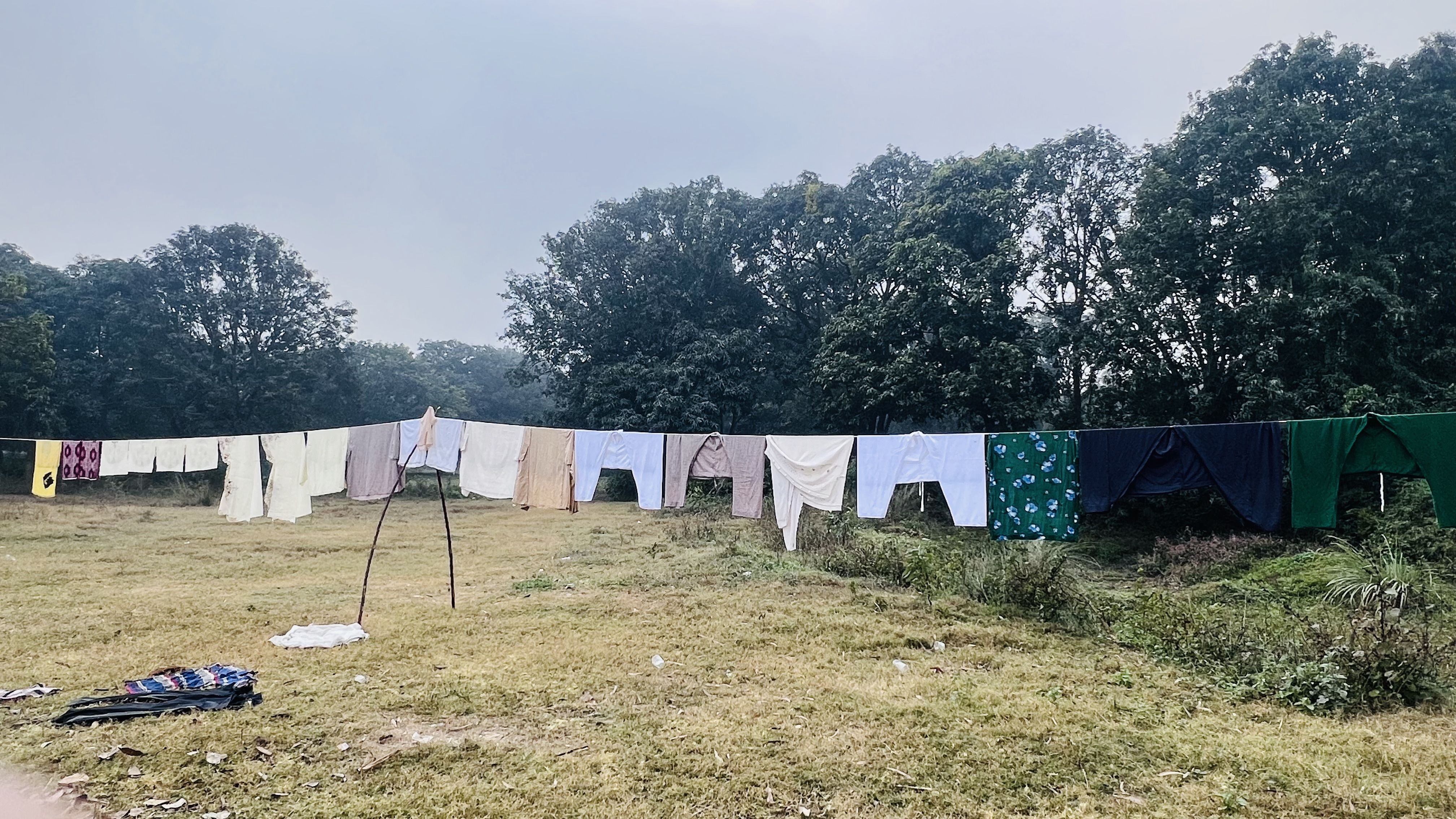
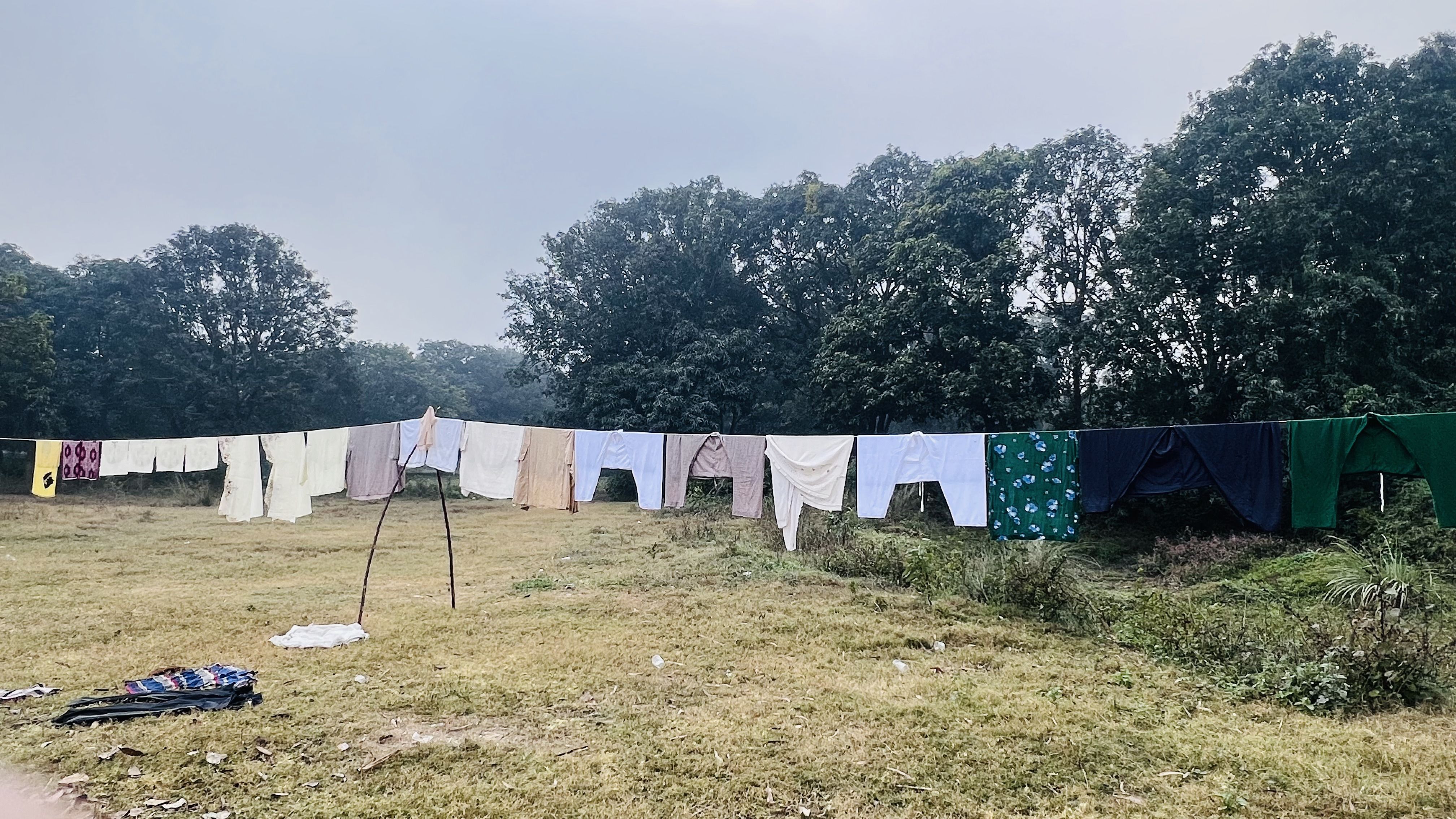
Dhobi caste is considered as lower caste among Muslims. Even though people get their clothes washed by them they never treat this community respectfully.
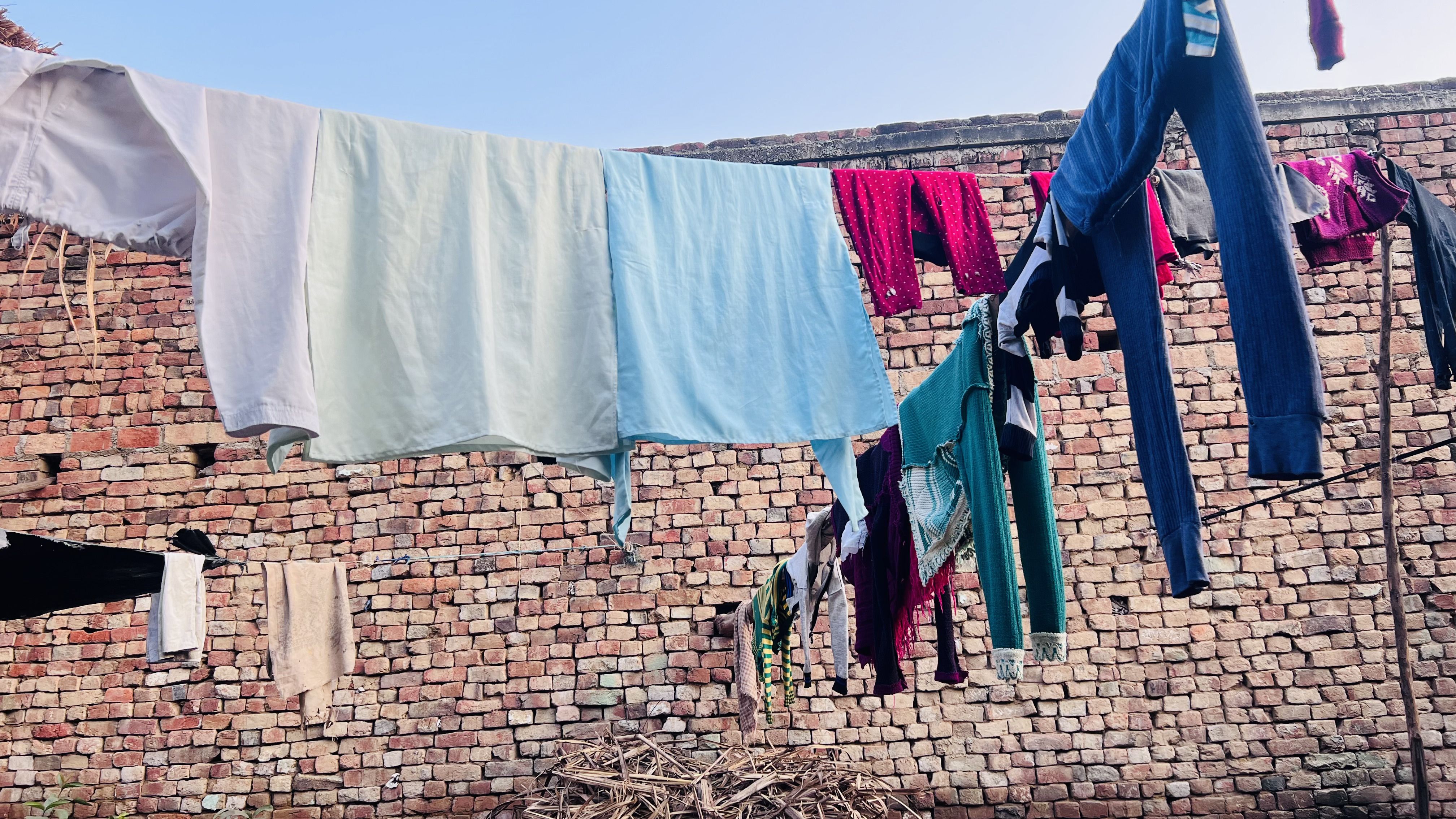
If these people had a washing machine, their work would have become easier, but they do not have enough money to buy it.
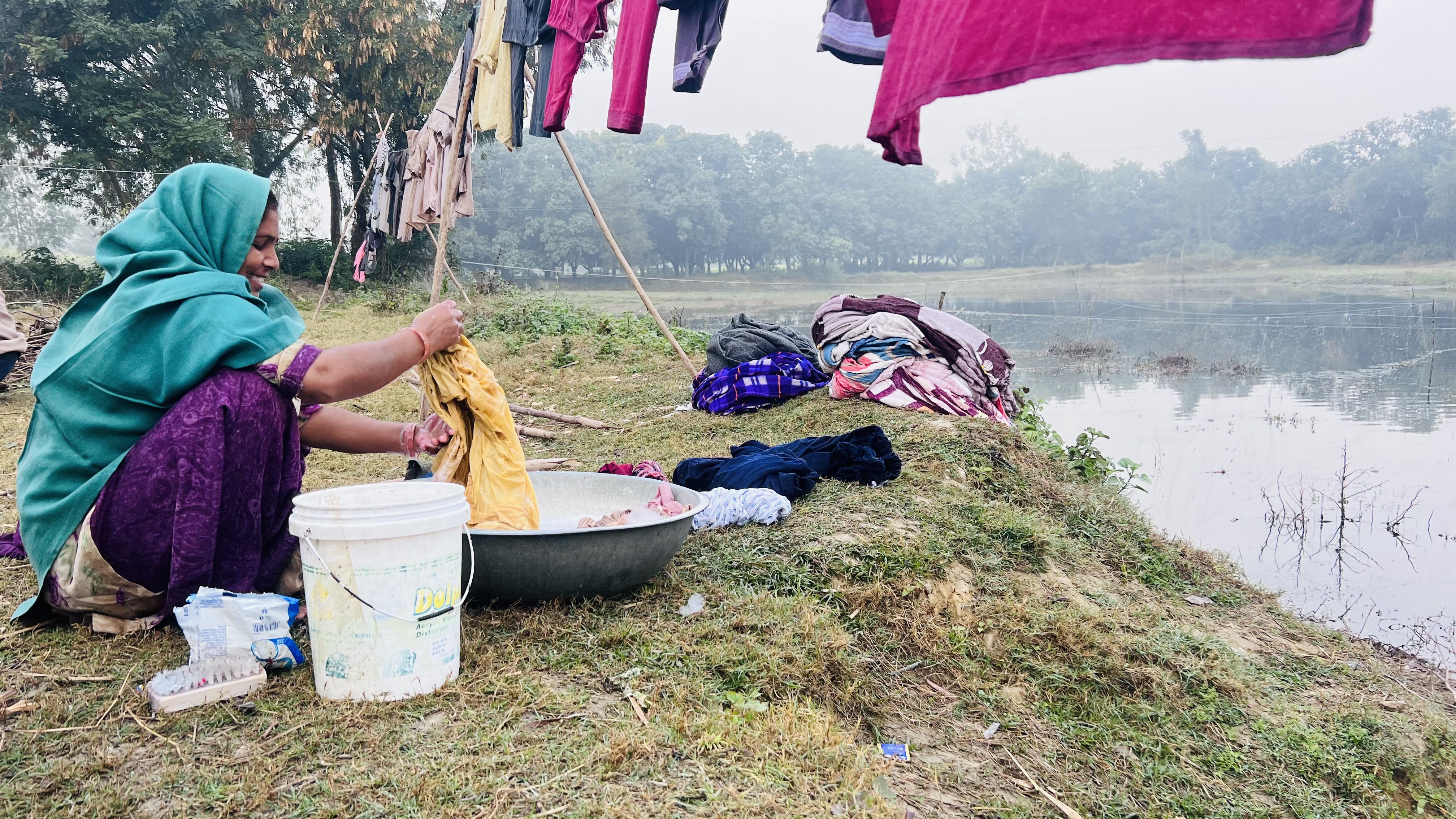
Since childhood, they have seen this work being done in their family and from a young age they started doing this work that now they can’t even think of doing anything else.
"It doesn’t matter whether it is Sunday or Monday, whether it is summer or winter, we have to do the work everyday," Hameed.

